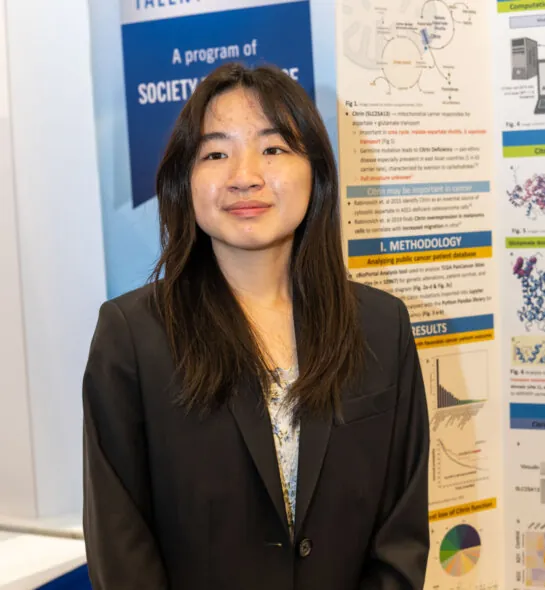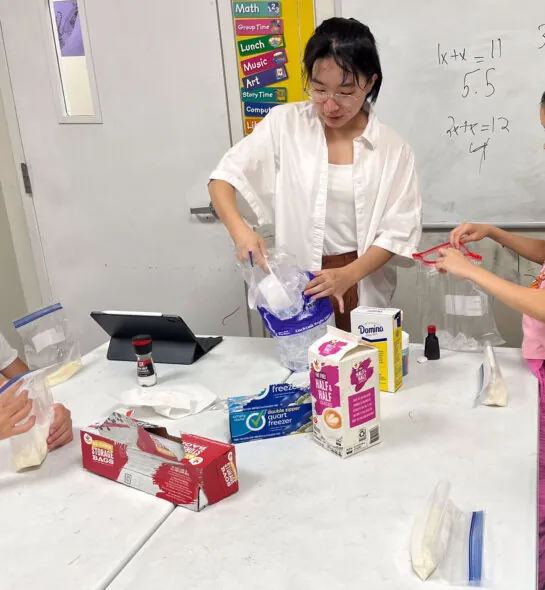Deeper Dive
Cancer is essentially uncontrolled growth, and to achieve this growth, cancer cells often rewire their metabolisms to support the biosynthesis, or creation, of materials. This “metabolic reprogramming” makes cancer cells vulnerable to the targeting of these altered pathways. Citrin is a protein involved in the transport of materials used in several of these altered pathways. It plays a role in how cancer cells manage energy, but its metabolic importance is unknown. In my project, I explored the protein citrin as a therapeutic target for cancer treatment. Using existing genetic data, I found that some changes to the citrin gene correlate with better outcomes in cancer patients. To understand why citrin mattered, I used the AI-powered AlphaFold system to create a 3D model of normal and altered citrin proteins. My model showed that some gene changes affected how the protein worked. I used CRISPR to turn down the citrin gene in colon cancer cells. Using gas chromatography–mass spectrometry, I took a metabolic “screenshot” of these citrin-deficient cells and saw upstream changes suggesting they were being depleted of cytosolic aspartate, an essential nutrient for cancer cells. Targeting aspartate availability is a prominent interest in the oncometabolism field, and my work suggests targeting citrin could be a promising way to deplete cancer cells of this nutrient. Using computer simulations, I found existing FDA-approved drugs that could inhibit citrin.
I started my project to learn more about oncometabolism and computational tools. After working with enzyme assays in the lab, I wanted to understand more about the structural basis of enzyme reactions in a computational context. I first encountered citrin while learning about the amino acid aspartate, which I knew to be essential in cancer cells. After discovering citrin’s involvement in multiple altered pathways but lack of a complete structural model, I decided to learn how to model the protein—and my project kept evolving from there. I also started my project to challenge myself personally; during my time in the lab, I learned that experiments are costly and require substantial expertise (which is why becoming a scientist requires training). I found myself spending most of my time learning steps for established protocols. I thought starting an independent project, entirely on my MacBook Pro, would challenge me in a different way.
My research suggests targeting citrin could be a promising way to deplete cancer cells of cytosolic aspartate, an essential nutrient for their growth. I hope my work inspires further research into targeting citrin for developing cancer treatments. The drug development process is lengthy, but I hope my modeling and docking studies may bring us closer to creating or identifying an effective molecule. I also hope my model may aid in analyzing citrin’s structural changes in citrin deficiency patients.



